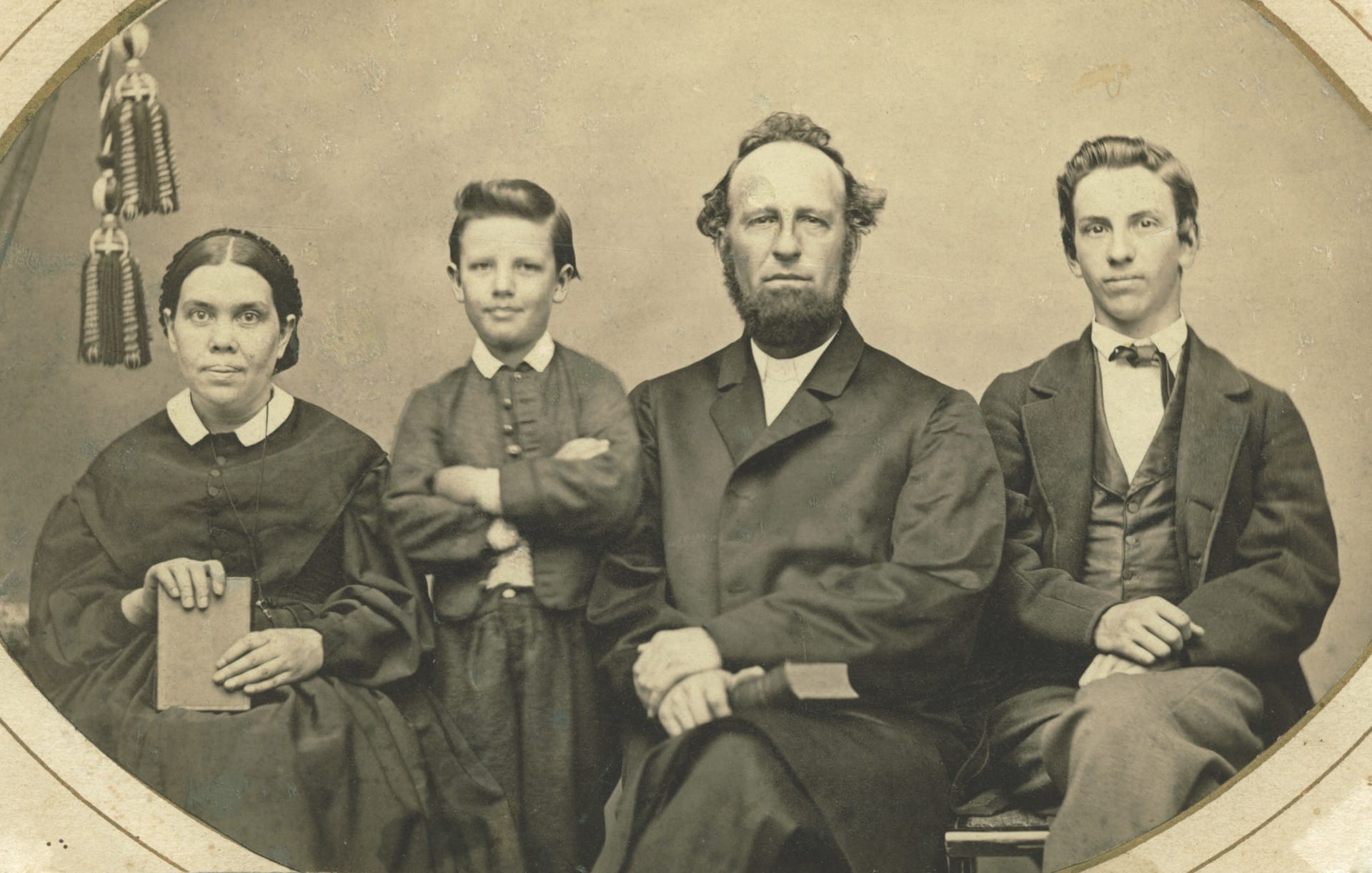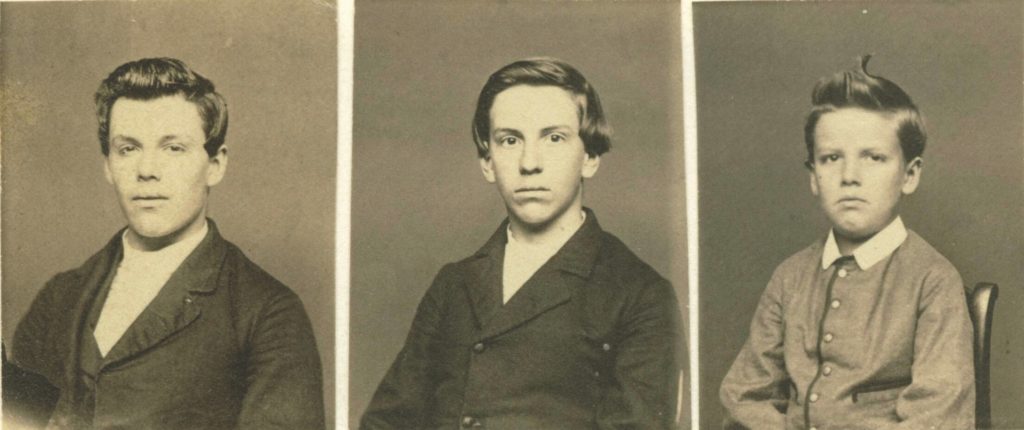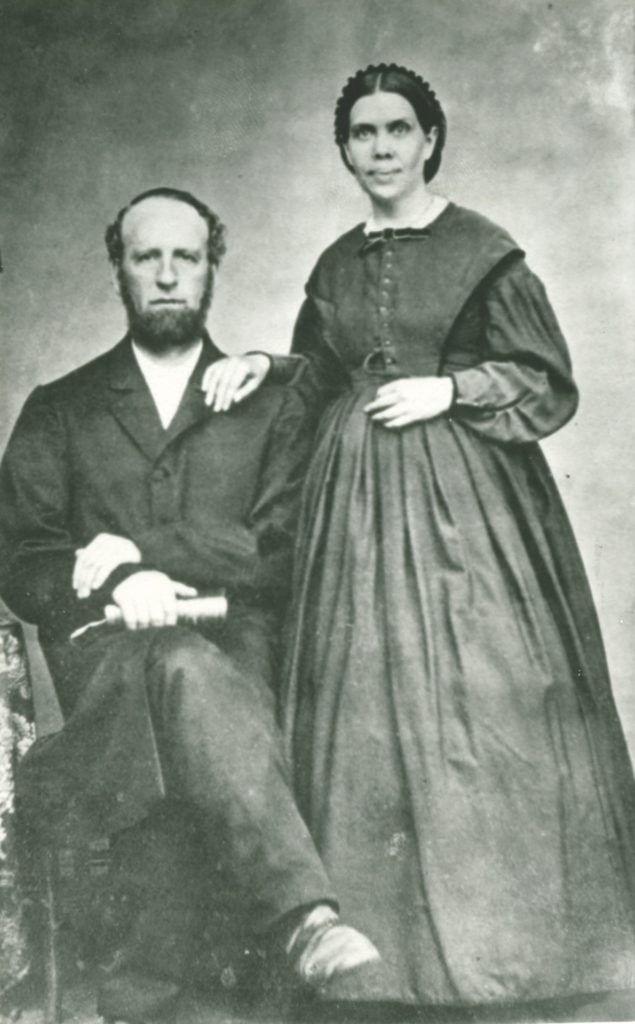
While in Australia, Ellen White visited a young man who’d taken sick during the prayer meeting the evening before. She prayed with him and brought words of comfort. Before leaving, she went into the next room, where his sister, an invalid for seven months, lay. After visiting, she noted: “The mother of the invalids had her hands full, and she looked pale and careworn. She needed our sympathies and prayers.”2
Ellen White recognized the mother’s experience, not only because she had been a caregiver herself, but because she had required much attention throughout her own life, starting as a young child. At the age of 9 she was struck in the face by a stone thrown by an angry girl.
“I have no recollection of anything further for some time after the accident. My mother said that I noticed nothing, but lay in a stupor for three weeks. No one but herself thought it possible for me to recover.”3
Her mother cared for her, and when others, including attending physicians, gave up all hope, Ellen’s mother tenaciously held to her complete recovery. Later Ellen White remarked:
“While in Portland, . . . I visited localities of special interest in connection with my early life, among them the spot where I met with the accident that has made me a lifelong invalid. This misfortune, which for a time seemed so bitter and was so hard to bear, has proved to be a blessing in disguise. The cruel blow which blighted the joys of earth was the means of turning my eyes to heaven.”4
Caregiving seemed to be an integral part of families in the nineteenth century. Medicine had not advanced to what it is today, and many unhealthy practices led not only to sickness but death. In the White home this was also the case. She records her experience with Nathaniel White, her brother-in-law, who lived with the family:
“Nathaniel was triumphant in God through the day, although he was very sick. He said he wished someone to be with him to lift him that day. He said he wanted them with him every moment. His wish was granted. I did not attend to anything else that day, but sat in his room and entertained him by reading the Bible and conversing with him.”5
When there are children in the home, sickness seems inevitable. Before the advance of medicine, children were often the worst afflicted. Many families buried their children before they ever reached their fifth birthday. The Whites had four boys, the youngest born in 1860. From all appearances he was a big, healthy baby boy who weighed more than 12 pounds at five weeks. On a trip to the country the baby contracted erysipelas, a bacterial infection of the skin easily treated today but often fatal to infants in 1860. James was away from home, leaving the young mother fighting for her baby’s life.
“I put a letter in the [post] office yesterday for you [James] and told you that we were all well but Monday night our child has taken sick in the night and all day yesterday was very sick—dangerous. . . . He is a very sick child. I thought you ought to know this and then you could do as you pleased about returning. Sister Benedict was with me all day yesterday. Sat up with the child all night and is with me today.”6
“My dear babe was a great sufferer. Twenty-four days and nights we anxiously watched over him, using all the remedies we could for his recovery, and earnestly presenting his case to the Lord. At times I could not control my feelings as I witnessed his sufferings. Much of my time was spent in tears, and humble supplication to God.”7 Sadly, the infant, John Herbert White, died.
Three years later the parents found themselves as caregivers again when a diphtheria epidemic threatened. Two of their three boys were seriously ill. The then-current practice of applying a poultice of Spanish flies with turpentine to the throat seemed unwise to the Whites, especially after learning health practices that were more what God would intend: fresh air, water, and sunlight.
“The symptoms had overtaken their children very rapidly, and the Whites lost little time in carrying out—scrupulously—the directions of Dr. Jackson. . . . By following Jackson’s method of treating diphtheria, which involved the better part of Friday night, on Sabbath morning they saw that they could safely leave the sick children in the hands of those who helped in the home. . . . Sabbath evening they returned to Battle Creek for another night of broken sleep as they treated and watched over the children.”8
The prescribed hydrotherapy treatment was an intensive round of hot baths alternated with wrapping the patient in cool damp cloths, and vigorous rubbing of the skin. It demanded much of caregivers. After finishing treatments such as this on their sons with what James White described as “perfect success,” the treatment was completely outlined in the Review for all members to understand and apply.9

Ellen White’s longest responsibilities of caregiving came in 1865, when her husband unexpectedly suffered a stroke. They had been on an early-morning walk when they stopped to examine corn in a neighbor’s garden. James went flush, his arm dropped to his side, and he was unable to speak, other than to say one word, “Pray.”
Ellen White cared for her husband for five weeks at home with some help from friends in Battle Creek. She instinctively felt that hydrotherapy treatments were what would restore him back to health, but alone, it seemed more than she could undertake for an extended time.

“My vital energies were too much exhausted for me to attempt to use water in my husband’s case. His wearing labors had long been bringing about the result, and could we expect God to work a miracle to heal him without our using the means or agencies he had provided for us? As there was no one in Battle Creek who dared take the responsibility of administering water in my husband’s case, we felt that it might be duty to take him to Dansville, N.Y., where he could rest, and water be applied by those well skilled in its use.”10
While there was some criticism of her decision to take James to what was viewed as a “secular” institution, Ellen saw no other choice. It was not only a matter of getting help and support, but it was also for herself as well. She realized that caregivers needed support.
“ ‘Our Home’ at Dansville was the only place I could think of where we could go and be free from business and care. Were we to go among those of our faith anywhere, they would not be prepared to realize our worn-out condition, especially the condition of my husband. We have so long borne the burden of the work which has compelled us to act with that determination of character, which has known nothing of turning aside, giving back, and yielding to circumstances, that our brethren and sisters would be unprepared to understand that we must be free from every anxiety, and that they must not trouble us with questions requiring thought, nor introduce to us matters which would in the least excite or depress the mind. We chose to go to Dansville, and be, as it were, isolated from our brethren, and lost in a certain sense to the work and cause of God, and to feel no responsibility resting upon us of the cause in which we had unitedly labored with all our energies for twenty years.”11
While in Dansville, Ellen White continued to care for her husband between treatments.
“My husband could obtain but little rest or sleep nights. He suffered with the most extreme nervousness. I could not sew or knit in his room, or converse but very little, as he was easily agitated, and his brain confused almost beyond endurance. He required almost constant care, and the Lord gave me strength according to my need.”12
Noting how James’s care was taking its toll on his wife, eventually one of the physicians sent a progress report to the Review suggesting the family come to assist her. For three months she, with her family, worked toward moving James to better health. While there were moments that appeared encouraging, eventually she felt what was needed was for James to be back in his faith community. They returned to Battle Creek.
“We felt that angels of God were all around us. We went comfortably and safely to the [Niagara] Falls, where we changed for a sleeping car. . . . I felt too much responsibility to sleep much. The words ‘Gentle angels round me glide, hopes of glory round me bide’ were in my mind much of the time during the night.”13
James did not make the progress she had hoped. It soon became apparent that her work was being hindered because of care for him. This, she felt, was not what God wanted, but rather Satan’s attempt to stop the work entirely. Ellen’s solution was to take James with her wherever she went, including to her preaching appointments.
“I always took my husband with me when I went out driving. And I took him with me when I went to preach at any place. I had a regular circuit of meetings. I could not persuade him to go into the desk while I preached. Finally, after many, many months, I said to him, ‘Now, my husband, you are going into the desk today.’ He did not want to go, but I would not yield. I took him up into the desk with me. That day he spoke to the people. Although the meetinghouse was filled with unbelievers, for half an hour I could not refrain from weeping. My heart was overflowing with joy and gratitude. I knew that the victory had been gained.”14
James still needed encouragement and with determination and tenacity, not unlike how her mother dealt with Ellen as a child, she pushed James even further. Ignoring the pleas and counsel of everyone, including James’s parents, she decided, in the deepest cold of a Michigan winter, to go on a preaching tour. Bundling him up in the sleigh, she drove the team forward.
“As long as life is left in him and me, I will make every exertion for him. That brain, that noble, masterly mind, shall not [be] left in ruin. God will care for him, for me, for my children. Satan shall not exult over us. You will yet see us standing side by side in the sacred desk, speaking the words of truth unto eternal life.”15
During this trip she insisted that he take two walks a day. On a particularly snowy day she borrowed a pair of boots, then walked a quarter mile in them and back again. She then invited him for a walk.
“On my return, I asked my husband to take a walk. He said he could not go out in such weather. ‘Oh, yes, you can,’ I replied. ‘Surely you can step in my tracks.’ He was a man who had great respect for women; and when he saw my tracks, he thought that if a woman could walk in that snow, he could. That morning he took his usual walk.”16
In addition, she recognized the need to exercise not only his body but his mind.
“Often brethren came to us for counsel. My husband wanted to see no one. He much preferred to go into another room when company came. But usually before he could realize that anyone had come, I brought the visitor before him, and would say, ‘Husband, here is a brother who has come to ask a question, and as you can answer it much better than I can, I have brought him to you.’ Of course, he could not help himself then. He had to remain in the room to answer the question. In this way, and in many other ways, I made him exercise his mind. If he had not been made to use his mind, in a little while it would have completely failed.”17
“After eighteen months of constant cooperation with God in the effort to restore my husband to health, I took him home again. Presenting him to his parents, I said, ‘Father, Mother, here is your son.’
“ ‘Ellen,’ said his mother, ‘you have no one but God and yourself to thank for this wonderful restoration. Your energies have accomplished it.’
“After his recovery, my husband lived for a number of years, during which time he did the best work of his life. Did not those added years of usefulness repay me manyfold for the eighteen months of painstaking care?
“I have given you this brief recital of personal experience, in order to show you that I know something about the use of natural means for the restoration of the sick. God will work wonders for every one of us if we work in faith, acting as we believe, that when we cooperate with Him, He is ready to do His part.”18
1 This article shares experiences from Ellen White’s life that relate to her acting as a caregiver to family members. It is not intended to be used as counsel from her on how to be a caregiver or the types of decisions that should be made with those who are in need of skilled care.
2 Ellen G. White, Experiences in Australia (Silver Spring, Md.: Ellen G. White Estate, 2015), p. 19.
3 Ellen G. White, Life Sketches (Mountain View, Calif.: Pacific Press Pub. Assn., 1915), p. 18.
4 Ellen G. White, in Review and Herald, Nov. 25, 1884.
5 Ellen G. White letter 10, 1853, in The Ellen G. White Letters and Manuscripts (Hagerstown, Md.: Review and Herald Pub. Assn., 2014), pp. 343, 344.
6 Ellen G. White letter 15, 1860, in Arthur L. White, Ellen G. White: The Early Years (Washington, D.C.: Review and Herald Pub. Assn., 1985), vol. 1, p. 430.
7 Ellen G. White, Spiritual Gifts (Battle Creek, Mich.: James White, 1860), vol. 2, p. 296.
8 Arthur L. White, Ellen G. White: The Progressive Years (Washington, D.C.: Review and Herald Pub. Assn., 1986), vol. 2, p. 14.
9 Review and Herald, Feb. 17, 1863.
10 Ellen G. White, in Review and Herald, Feb. 20, 1866.
11 Ibid.
12 Ellen G. White, in Review and Herald, Feb. 27, 1866.
13 Ibid.
14 Ellen G. White, Selected Messages (Washington, D.C.: Review and Herald Pub. Assn., 1958, 1980), book 2, p. 307.
15 Ellen G. White manuscript 1, 1867, in Ellen G. White, Manuscript Releases (Silver Spring, Md.: Ellen G. White Estate, 1990), vol. 6, pp. 300, 301.
16 E. G. White, Selected Messages, book 2, p. 307.
17 Ibid.
18 Ibid., p. 308.